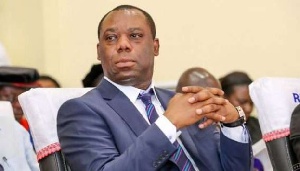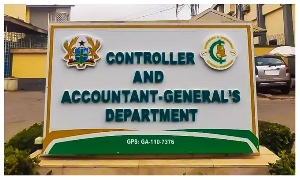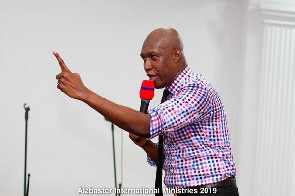The 2018/2019 academic year for Senior High Schools comes with a profound increase in admission which constitute a rise from 362,118 students to 472,000 students.
The current school capacity nationwide amount to 290,737 therefore leaving a deficit for of 183,000. The government is therefore securing a loan of fifty (50) million cedis to complete construction of get fund sponsored school facilities that has gotten to 70% completion stage.
However, in the sight of government it will take seven years for these infrastructure to be fully provided so all schools can have the capacity to accommodate the increasing number of student year after out.
Due to the deficit in infrastructure, the double tracking system has been initiated to thriftily make use of the limited capacity available in the schools; accommodating the numbers that comes in every year. With this, the facilities in the schools will be used throughout the year thus making them to be utilised to it maximum efficiency.
For the next seven years the facilities in the various schools will be tested at its apex efficiency and it is expected that it performs up to the task. Facilities Management and Infrastructure The presence of a facilities manager in the school plays a vital role in the complete educational setup needed for the student to be well educated, safeguarding government investment.
The work of a facility manager doesn’t begin after the facility construction is done but right from the design stage. Inculcating intelligence from the facilities manager in the design process will ensure the smooth functionality and can reduce maintenance cost of the facility when it is completed. Growth in the infrastructure demand requires that such investment is well managed for posterity to benefit.
The management and protection of these investments falls under the facilities manager’s remit. This ranges from the maintenance of classroom blocks, administration blocks, boarding houses, toilet facilities, water and sanitation management, provision and maintenance of beds, desks and dining hall furniture, Environmental Health and Safety etc. The responsibility of the facilities manager is immense and critical to the maintenance and provision of a sound educational environment.
The provision of facilities management services in our educational institutions has become more important now than ever especially in our second cycle institutions. This is due to the government’s increased capital investment in the construction of classroom blocks, dining halls, boarding houses etc.
It will interest readers and tax payers to know that the cost of constructing a facility is just 15% of its lifetime cost therefore making it a very capital intensive investment.
The question to ask is; is government making provisions for a proper maintenance & sustainability plan? Taking into consideration the lifetime cost of a facility, is government planning on allocating funds for the management of all these investment? With the associated cost of maintenance of buildings, is the government ready to bear the yearly recurrent cost of maintenance for the schools or other interventions will be required i.e PTA sponsoring maintenance programs.
Maintaining the Infrastructure
Since the current system will have the schools to be used throughout the year, it will be important that a well thought through maintenance plan is made for the schools. It will be advisable if there can be a period of two to four weeks interval between the various tracks to allow for the maintenance of the schools. A facilities management team will have to be set up by the Ministry of Education or Ghana Education Service to take responsibility for the proper scheduling, ensure availability of funds, provide timely procurement of services and materials and put up a comprehensive strategy to protect, improve and maintain these investment by the government. Facilities management functions can also be decentralised where the District offices of Ghana Educations Service (GES) will be empowered to ensure that these investment are well catered for.
Benefits of Facilities Management
A good facilities maintenance plan helps to ensure that school facilities will be cared for appropriately. In constructing new buildings for the schools, the need to renovate and refurbish old ones should not be lost sight of. Some buildings have historical prominence which enhances the rich history and beauty of the schools and its landscape. As a facilities manager, the wellbeing, safety and health of these students is a priority.
The nature of activities found in our second cycle institutions in recent times is a threat to the wellbeing and health of these students. Gone are the days when students were engaged in other non-core educational activities i.e weeding, intense sporting activities, etc.. These activities encouraged winding down and taking a break from educational activities that can be overwhelming and sometimes cause brain burn-outs. Long sitting of lecture times intended to equip these students is rather making them prone to cardiovascular disease, type II diabetes and even cancer.
It is no wonder young people lately are diagnosed of such illness. A strategic approach by engaging and collaborating with professional facilities managers will go a long way to ensure that the wellbeing of students, environmental health and safety in the schools are apt and will not affect the healthy living of the student. The properties will be in good condition and will not have adverse effect on the studies of the student.
When these properties are well maintained, the government will not have to invest huge capital into renovation and even constructing new ones due continuous wearing and tearing because a well maintained facility should last well over 80 years. The facility manager’s role is to ensure that the above listed objectives are achieved and ensure that the educational environment is the best to promote teaching and learning.
Let’s Get it right Ghana!!!
Opinions of Thursday, 2 August 2018
Columnist: Nick Solomon















